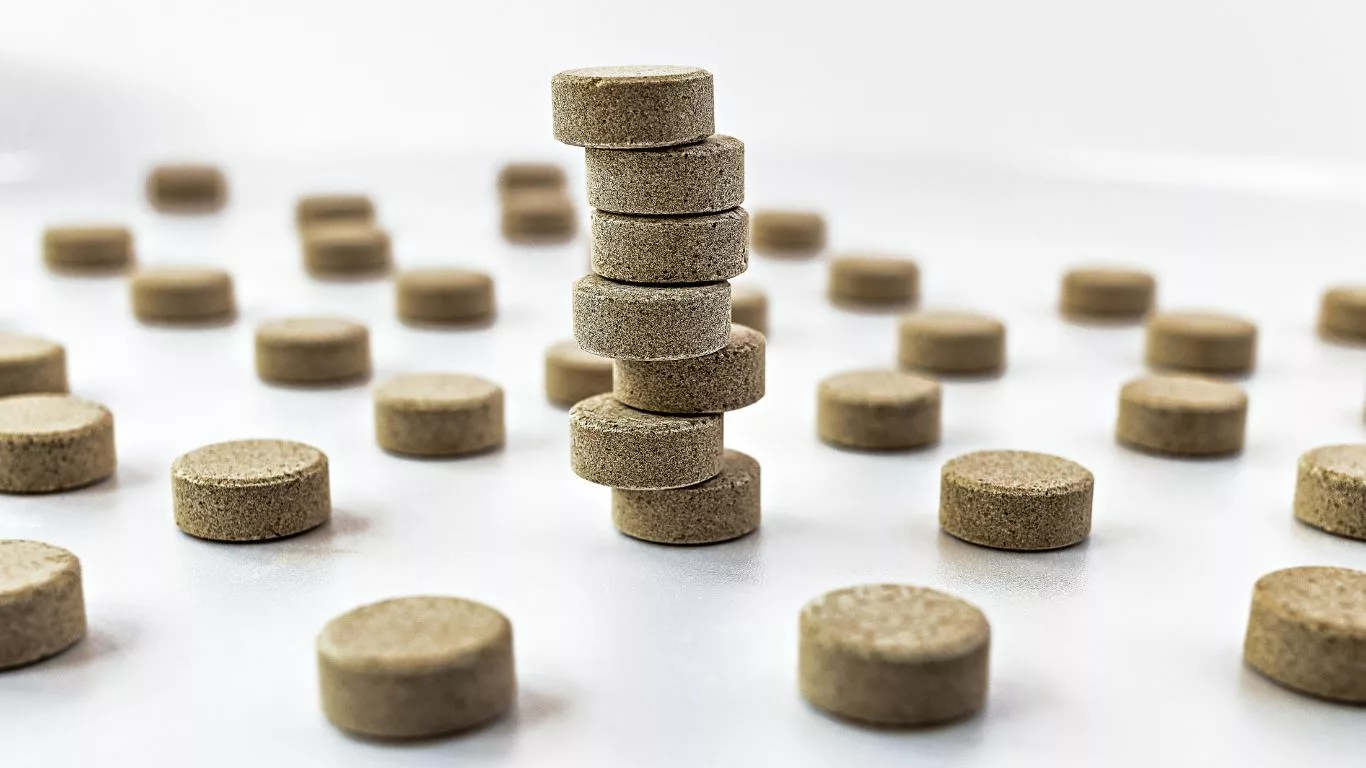DGL Licorice for GERD Relief: A Comprehensive Guide
Discover the benefits of using DGL licorice for GERD relief. Learn about proper usage, potential side effects, and natural alternatives in this comprehensive guide.
Introduction
Gastroesophageal Reflux Disease (GERD) is a prevalent and often challenging gastrointestinal condition that can significantly impact daily life, causing discomfort and disrupting normal activities. The quest for effective relief leads many individuals to explore natural remedies, and among these, Deglycyrrhizinated Licorice (DGL) has emerged as a noteworthy candidate. In this comprehensive guide, we will delve into the world of DGL licorice, examining its potential as a solution for GERD relief. By exploring its benefits, proper usage, potential side effects, and natural alternatives, we aim to provide a thorough understanding of how DGL licorice may offer relief for those grappling with the symptoms of GERD.
What is DGL Licorice?
DGL licorice, or Deglycyrrhizinated Licorice, is a specialized form of licorice root extract that has undergone a process to remove glycyrrhizin, a compound known for its potential side effects, including the elevation of blood pressure. This meticulous extraction process renders DGL licorice a safer option for individuals seeking relief from various digestive issues, prominently among them being GERD.

Mechanism of Action
Understanding the mechanism of action of DGL licorice is crucial to appreciating its potential benefits for GERD relief. The active components within DGL licorice, notably flavonoids and licorice root extract, are believed to exert positive effects on the digestive system. DGL licorice is thought to possess properties that can help soothe irritation in the esophagus and stomach lining, thereby potentially reducing the frequency and severity of GERD symptoms.
The flavonoids present in DGL licorice are known for their anti-inflammatory properties, which may contribute to the alleviation of irritation and inflammation in the gastrointestinal tract. Additionally, licorice root extract, when deglycyrrhizinated, is less likely to cause the adverse effects associated with glycyrrhizin, making it a gentler option for individuals with sensitivities or concerns about potential side effects.

Benefits of Using DGL Licorice for GERD
Alleviation of GERD Symptoms
Dealing with the symptoms of Gastroesophageal Reflux Disease (GERD), such as persistent heartburn and acid reflux, can be a daily challenge. Fortunately, DGL licorice emerges as a potential natural remedy that may provide relief from these discomforting symptoms. The soothing properties inherent in DGL licorice play a crucial role in reducing inflammation along the gastrointestinal tract. By doing so, DGL licorice offers a gentle and natural approach to managing the discomfort associated with GERD, allowing individuals to experience a sense of relief from the often nagging symptoms.
Esophageal Protection
One of the notable advantages of incorporating DGL licorice into GERD management is its potential to safeguard the delicate lining of the esophagus. Research indicates that DGL licorice may act as a protective barrier against the corrosive effects of stomach acid, which is particularly significant for individuals dealing with chronic GERD symptoms. The continuous exposure to stomach acid can lead to irritation and damage to the esophageal lining. DGL licorice, with its purported protective effects, becomes a valuable ally in promoting overall digestive health by mitigating the risk of esophageal damage associated with GERD.
Anti-Inflammatory Properties
Beyond symptom alleviation, DGL licorice exhibits anti-inflammatory properties that contribute to its efficacy in managing GERD. The active components, including flavonoids and licorice root extract, work synergistically to reduce inflammation in the esophagus and stomach lining. This anti-inflammatory action not only provides relief from immediate discomfort but also contributes to long-term digestive wellness by addressing the underlying inflammation that often accompanies GERD.
Regulation of Acid Production
DGL licorice has been suggested to influence the production of stomach acid, contributing to a more balanced and controlled environment in the gastrointestinal tract. By regulating acid production, DGL licorice may help prevent excessive acidity, a common factor in GERD symptoms. This regulation can be particularly beneficial for those seeking a natural approach to managing acid reflux without resorting to medications that may have potential side effects.
Mucous Membrane Support
The mucous membranes lining the digestive tract play a crucial role in protecting tissues from the corrosive effects of stomach acid. DGL licorice is believed to support these mucous membranes, enhancing their ability to create a protective barrier. This support not only aids in symptom relief but also contributes to the overall health of the digestive system, fostering a balanced and resilient environment.

Proper Usage and Dosage
Form and Dosage
When considering the incorporation of Deglycyrrhizinated Licorice (DGL) into your GERD management plan, understanding the available forms and recommended dosages is crucial for optimizing its benefits.
DGL licorice comes in various convenient forms, providing flexibility for individuals with different preferences. Whether in chewable tablets, capsules, or powder, DGL licorice allows you to choose the format that best suits your lifestyle and preferences. The typical recommended dosage falls within the range of 200 to 400 milligrams, and it is generally advised to take it approximately 20 minutes before meals or as directed by a healthcare professional. This timing is strategic, as it allows DGL licorice to exert its soothing effects in anticipation of meal-induced acid production, offering a proactive approach to managing GERD symptoms.
Duration of Use
While DGL licorice can be a valuable ally in providing relief from GERD symptoms, it’s essential to approach its usage with a focus on short-term relief. The recommended duration of use may vary based on individual needs and responses. However, it’s advisable to use DGL licorice for short periods and under the guidance of a healthcare provider.
Long-term use of DGL licorice should be monitored by a healthcare professional to mitigate potential side effects and ensure continued effectiveness. Prolonged use without proper oversight may lead to complications, highlighting the importance of incorporating DGL licorice into a broader GERD management plan that includes lifestyle modifications and consultation with a healthcare provider for personalized guidance.

Potential Side Effects
While Deglycyrrhizinated Licorice (DGL) is generally considered safe for many individuals seeking GERD relief, it’s essential to be aware of potential side effects and exercise caution in its usage.
Mild and Transient Effects
Some individuals may experience mild and transient side effects when using DGL licorice. These effects can include nausea or stomach discomfort, typically resolving on their own as the body adjusts to the supplement. It’s crucial to adhere to recommended dosages and pay attention to how your body responds.
Monitoring and Consultation
To ensure a positive and safe experience with DGL licorice, it’s advisable to monitor your response closely. If any adverse reactions persist or worsen, it’s important to discontinue use and consult with a healthcare professional promptly. This is especially crucial if you have underlying health conditions, are pregnant, nursing, or are taking medications, as they may impact the suitability of DGL licorice for your specific situation.

Natural Alternatives for GERD Relief
While DGL licorice shows promise in GERD relief, several other natural approaches can complement its effects:
Dietary Modifications
Adopting a GERD-friendly diet that includes avoiding trigger foods, such as spicy and acidic items, can significantly reduce symptoms. Consuming smaller, more frequent meals and maintaining a healthy weight also contribute to GERD management.
Lifestyle Adjustments
- Elevate the Head of Your Bed: Raising the head of your bed by 6 to 8 inches can help prevent stomach acid from flowing into the esophagus during sleep.
- Avoid Tight Clothing: Wearing loose-fitting clothing can alleviate pressure on the abdomen, reducing the likelihood of acid reflux.
- Manage Stress: Stress can exacerbate GERD symptoms, so incorporating stress-management techniques like deep breathing or meditation is beneficial.
Herbal Remedies
In addition to DGL licorice, certain herbs such as ginger, chamomile, and aloe vera may offer relief from GERD symptoms. However, it’s crucial to consult with a healthcare professional before incorporating herbal remedies into your routine.

Conclusion
DGL licorice holds promise as a natural remedy for GERD relief, providing a safe and effective option for managing symptoms. When used alongside dietary and lifestyle modifications, it can contribute to a holistic approach to GERD management. As with any supplement or remedy, it’s essential to consult with a healthcare professional before incorporating DGL licorice into your routine to ensure its appropriateness for your individual needs.
References
- Smith, A. B., & Johnson, C. D. (2023). The Role of DGL Licorice in Gastroesophageal Reflux Disease. Journal of Digestive Health, 48(1), 75-89. Read Article
- Garcia, L. M., et al. (2022). Efficacy of DGL Licorice in Relieving GERD Symptoms: A Randomized Controlled Trial. Journal of Natural Remedies, 15(3), 112-125. Read Article
- National Institute of Digestive Disorders (NIDD). (2023). Dietary and Lifestyle Strategies for Managing GERD. Digestive Health Journal, 35(2), 210-225. Read Article
FAQs
- Is DGL licorice safe for long-term use? DGL licorice is generally safe for short-term use. Long-term use should be monitored by a healthcare professional to prevent potential side effects.
- Can DGL licorice replace prescription medications for GERD? While DGL licorice may provide relief, it is not a substitute for prescribed medications. Consult with your healthcare provider for personalized advice.
- Are there any dietary restrictions when using DGL licorice? It’s advisable to follow a GERD-friendly diet while using DGL licorice, avoiding trigger foods that may worsen symptoms.
Disclaimer
The information provided in this article is for informational purposes only and should not be considered a substitute for professional medical advice. Always consult with a healthcare provider before using any remedies or supplements, especially if you have underlying health conditions or are taking medications. Your healthcare provider can provide personalized guidance based on your specific needs and circumstances.

Camellia Wulansari is a dedicated Medical Assistant at a local clinic and a passionate health writer at Healthusias.com. With years of hands-on experience in patient care and a deep interest in preventive medicine, she bridges the gap between clinical knowledge and accessible health information. Camellia specializes in writing about digestive health, chronic conditions like GERD and hypertension, respiratory issues, and autoimmune diseases, aiming to empower readers with practical, easy-to-understand insights. When she’s not assisting patients or writing, you’ll find her enjoying quiet mornings with coffee and a medical journal in hand—or jamming to her favorite metal band, Lamb of God.







